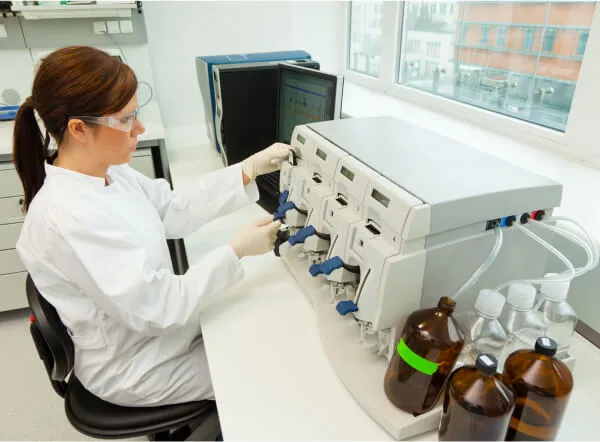Immunology and Microbiological Sciences

The immunology and microbiological sciences deal with the genetics of microorganisms and the biology of infectious diseases. Learn about degree programs, careers in these fields, employment outlook and salary data for this field.
<h2 id="section---AreImmunologyAndTheMicrobiologicalSciencesForMe">Are Immunology and the Microbiological Sciences for Me?</h2>
<h3 id="section---CareerOverview">Career Overview</h3>
<p>Immunology and the <a class="external" href="https://learn.org/articles/Microbiology_How_to_Become_a_Microbiologist_in_5_Steps.html">microbiological sciences</a> are a set of disciplines that cover areas such as molecular biology, the genetics of microorganisms and the molecular basis for infectious diseases. Degrees in immunology and microbiology require courses in a number of topics, including <a class="external" href="https://learn.org/articles/Biology_Major_Online_and_Campus-Based_Program_FAQs.html">biology</a>, <a class="external" href="https://learn.org/articles/Degree_Programs_in_Chemistry_Frequently_Asked_Questions.html">chemistry</a>, <a class="external" href="https://learn.org/articles/Biochemistry_5_Steps_to_Becoming_a_Biochemist_in_5_Steps.html">biochemistry</a>, math and physics.
</p>
<h3 id="section---JobOptions">Job Options</h3>
<p>A wide variety of careers would be open to you if were a degree holder in immunology and microbiology. You could find employment in areas such as medicine, academia, the <a class="external" href="https://learn.org/articles/What_is_Biotechnology.html">biotechnology</a> industry and government research. Jobs typically involve lab work, often with high-powered microscopes. Careers require regular hours in an educational or research facility and may provide advancement to management or supervisory positions.
</p>
<h3 id="section---SalariesAndEmploymentOutlook">Salaries and Employment Outlook</h3>
<p>According to the U.S. Bureau of Labor Statistics (BLS), biochemists and biophysicists can expect employment growth of 19% from 2012-2022 (<i>www.bls.gov</i>). Microbiologists should see job opportunities increase by 7% during the same time period. As seen in May 2013 reports from the BLS, biochemists and <a class="external" href="https://learn.org/articles/Biophysics_Career_and_Salary_FAQs.html">biophysicists</a> earned a mean annual wage of $91,640. During the same year, microbiologists made $75,230.
</p>
<h2 id="section---HowCanIWorkInImmunologyAndMicrobiologicalSciences">How Can I Work in Immunology and Microbiological Sciences?</h2>
<h3 id="section---EducationInformation">Education Information</h3>
<p>There are more immunology and microbiology degrees at the graduate and post-graduate levels than at undergraduate levels. Master's and Doctor of Philosophy (Ph.D.) programs in these disciplines are usually highly selective and require a substantial undergraduate background in the <a class="external" href="https://learn.org/articles/Online_Biological_Sciences_Degrees_Frequently_Asked_Questions.html">biological sciences</a> for enrollment.
</p>
<p>As an undergraduate, you could major in microbiology and immunology. These degree programs would introduce you to a variety of disciplines such as microbial <a class="external" href="https://learn.org/articles/Genetics_Major_Your_Questions_Answered.html">genetics</a>, medical bacteriology and <a class="external" href="https://learn.org/articles/Bachelors_Degrees_in_Parasitology_Answers_to_Your_Questions.html">parasitology</a>. You can expect a core curriculum with courses in chemistry, physics, computer science and statistics.
</p>
<h3 id="section---GraduatePrograms">Graduate Programs</h3>
<p>You could pursue either a <a class="external" href="https://learn.org/articles/What_is_the_Curriculum_of_a_Health_Sciences_Masters_Degree.html">Master of Health Science (MHS)</a> or Master of Science degree in immunology and microbiology. There would be at least 64 credit hours of coursework, and you may also be required to write a master's thesis. A Master of Science degree program is geared towards research and may incorporate lab rotations. Courses would cover topics like principles of immunology, virology, parasitology and disease ecology. You might also find electives on AIDS research, vaccine development or immunogenetics.
</p>
<p>Another option is to earn a Ph.D. degree in immunology and microbiology, studying advanced immunology, <a class="external" href="https://learn.org/articles/Molecular_Biology_Degree_and_Certificate_Programs_FAQs.html">molecular biology</a>, the pathogenesis of bacterial infections, parasitology and the principles of <a class="external" href="https://learn.org/articles/Public_Health_Doctoral_Degree.html">public health</a> ecology. Independent lab research and a dissertation are likely to be required, so you may also take advanced courses in <a class="external" href="https://learn.org/articles/Online_Graduate_Statistics_Courses_Frequently_Asked_Questions.html">statistics</a> and research methodology in preparation.</p>


.svg)